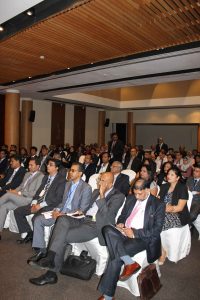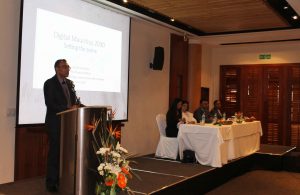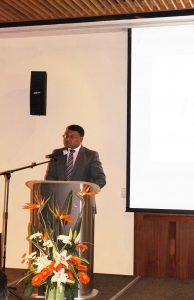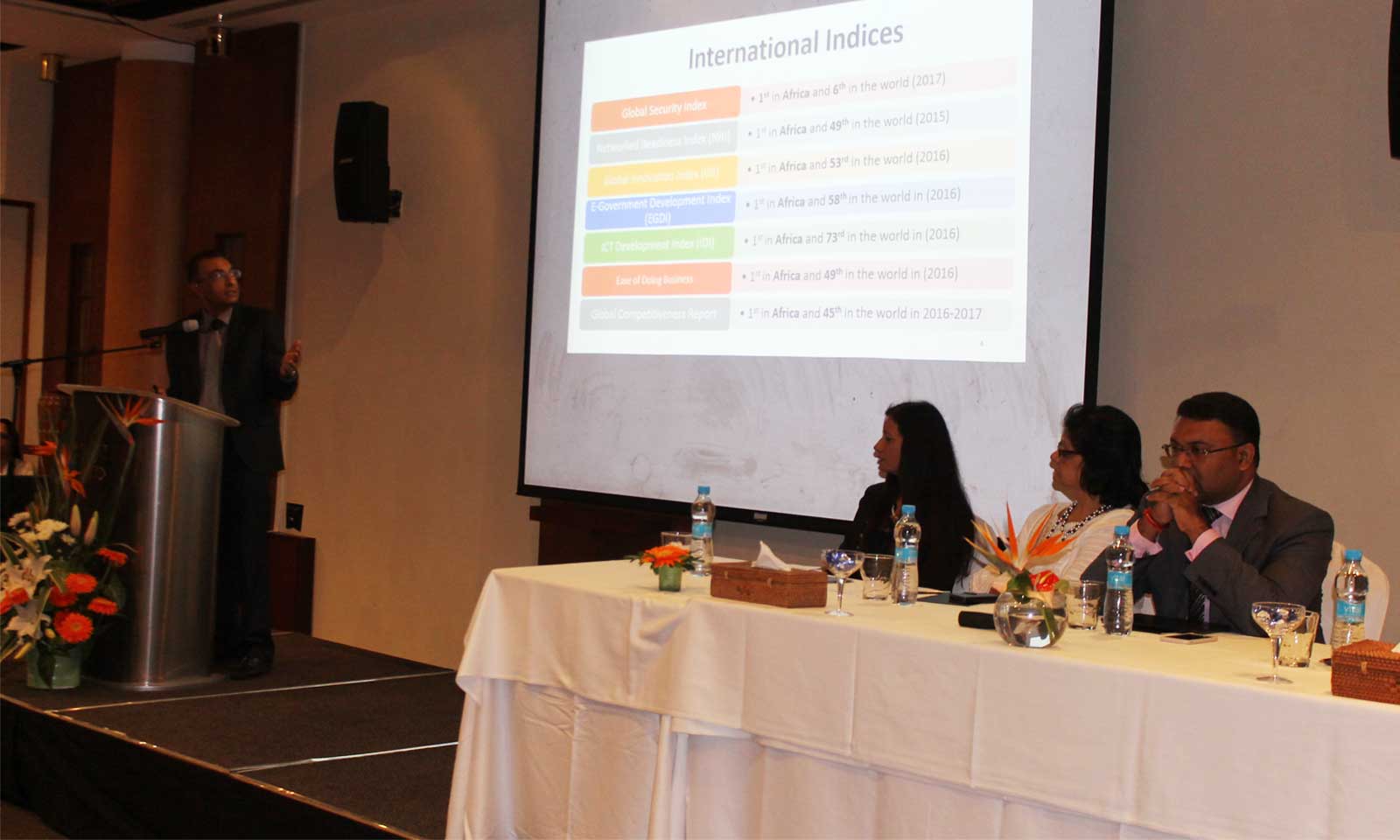It was during a Workshop organised on 20 July 2017 at the Sofitel that the Minister of ICT, Yogida Sawmynaden, launched a discussion on Digital Mauritius in 2030. The country’s ambition is to become a world reference in the field of new technologies.
Mauritius tops the list on all digital indicators in Africa
Mauritius ranks first in Africa in all digital indices including the Global Security Index, Global Innovation Index, E-Government Development index, ICT Development index. Internet penetration has increased by 20% in one year and e-government has grown both internally and for its users. As we mentioned in a previous article, online payment solutions have been deployed and e-services have multiplied. 10 mobile applications are also in development.

The digital evolution of Mauritius is a guiding principle for the current government: in addition to the promotion of open source and the implementation of a “Talent Management” policy, companies are also encouraged to adopt the international standard for information security management ISO 27001. In addition, Rs. 150 million is currently allocated for research and innovation.
Towards ever more innovations
For the Minister of ICT, it is not enough to rest on our laurels. It is towards technologies such as Cloud computing, Blockchain, 3D printing, and big data analysis that the government now wishes to turn. The objective is to create a smart and digital state to make innovation the basis of the country’s economy in order to double the revenues linked to information and communication technologies. In fact, by 2030, nearly 20,000 new jobs will be created in the ICT field. It is also planned that 100% of households will have access to the Internet at an affordable price in order to develop a culture of digital innovation. Cyber security will also see its importance grow in order to be able to ward off all attacks.

Know how to face challenges with innovative ideas
However, there are many challenges, especially concerning the mismatch between supply and demand in the digital economy. The goal is to retain local talent in Mauritius and provide adequate training to bridge the gap. On the other hand, another major challenge concerns the culture of innovation, which is still not very present among the majority of the Mauritian population. Finally, the lack of financial and logistical support for ICT companies is also a point that needs to be improved. Despite these challenges, there are many opportunities in Mauritius in the digital domain, notably thanks to a new 3000 km submarine cable about to be commissioned by the METISS consortium.

ICT Minister Yogida Sawmynaden
One of the next projects to be launched and particularly supported by Yogida Sawmynaden is the implementation of e-health, a digital platform applied to health.
“The doctor will have a history of the patient wherever he or she is, and the patient will have a digital prescription linked to the card number. This system will avoid a lot of complications and save time, paper, and waste.”



